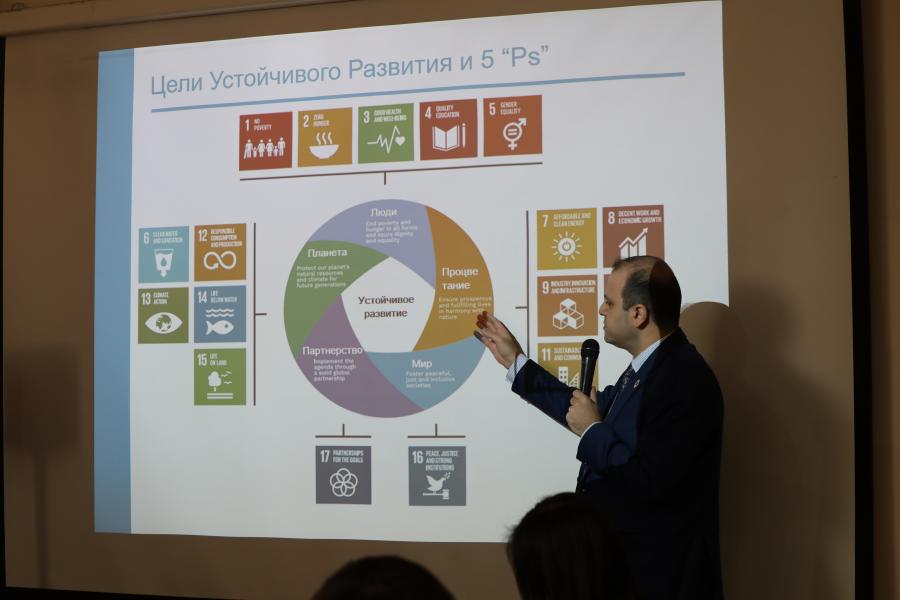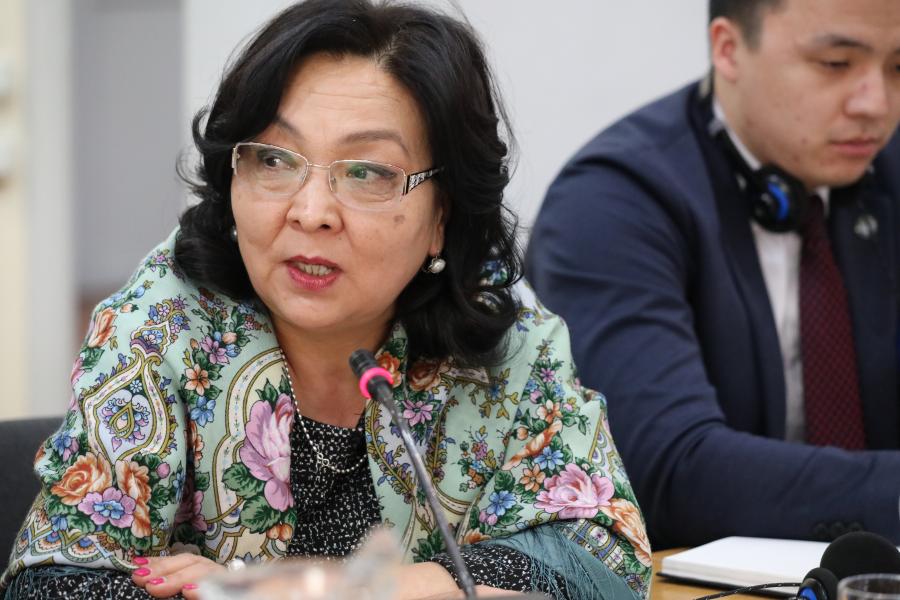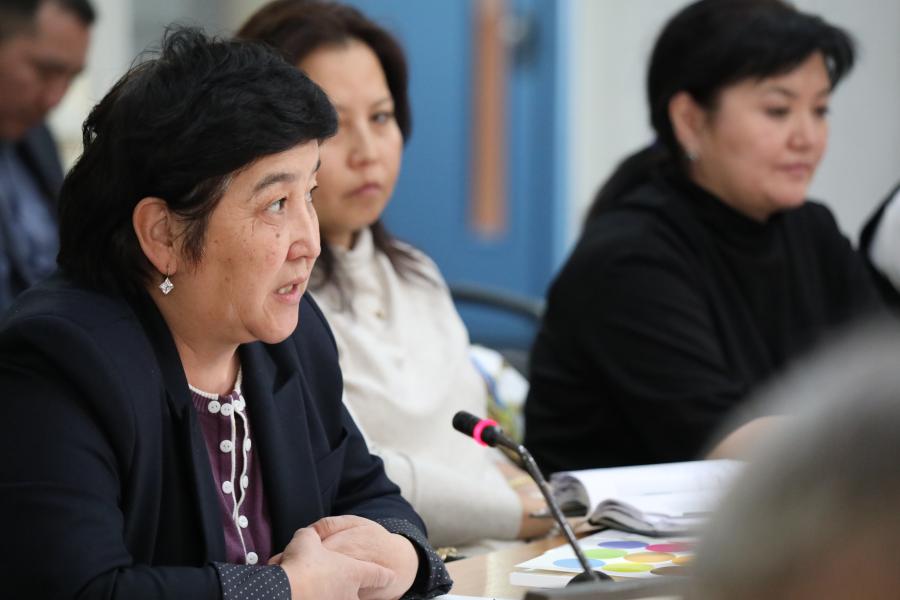UN and Government partners work on joint priorities for 2020-2022
22 февраль 2020
On 21 February the United Nations in the Kyrgyz Republic held national consultations with national partners to discuss achievements of Joint Work Plans implemented during 2018-2019 within UNDAF 2018-2022 for Priority 1 on Sustainable and Inclusive Economic Growth.
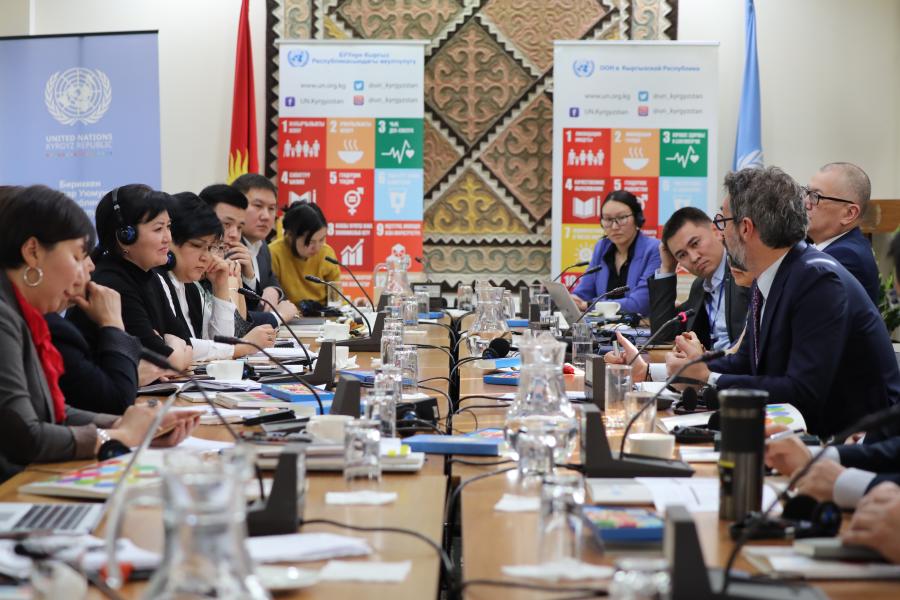
The consultations will help identify priorities for the next round of Joint Work Plans of the Kyrgyz Government and the UN for 2020-2022. This period covers the second half of the implementation of the United Nation Development Assistance Framework (UNDAF), which is the major document signed in May, 2017 by the Government and the UN to guide the work of the Government, UN Country Team, and their partnerships for 2018-2022.
UNDAF has four main priorities with respective outcomes, identified jointly with the Government, the UN, civil society, and other development partners:
- Sustainable and Inclusive Economic Growth: By 2022, inclusive and sustainable industrial, agricultural and rural development contribute to economic growth, decent work, improved livelihoods, food security and nutrition, especially among women and vulnerable groups
- Rule of Law and Good Governance: By 2022, institutions at all levels are more accountable and inclusive ensuring justice, human rights, gender equality and sustainable peace for all
- Environment, Climate Change, and Disaster Management: By 2022, communities are more resilient to climate and disaster risks and are engaged in sustainable and inclusive natural resource management and risk-informed development
- Social Protection, Health, and Education: By 2022, social protection, health and education systems are more effective and inclusive, and provide quality services
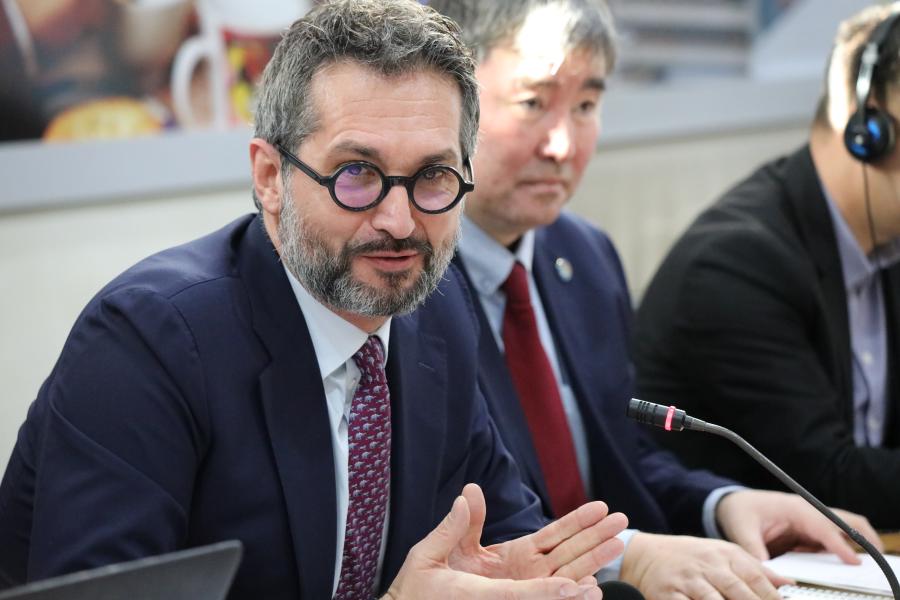
The co-chair of the Result Group for Sustainable and Inclusive Economic Growth, Andrea Bagnoli, WFP Country Director, noted that this workshop allows the UN and the Government to imbed strategic development goals into the programmatic work. Pointing out that the Decade of Action until 2030 calls for ambitious actions to achieve the Sustainable Development Goals, Andrea Bagnoli stressed on the importance of this exercise for cross sectoral coordination and for identifying immediate indicators of joint progress, which should serve as a compass throughout the period until 2022. He noted that resources are limited, and therefore the activities should be driven by the principles of leaving no one behind and reaching the farthest behind first.
Another co-chare of the result group, Marat Yusupov, representative of UNIDO, discussed the results of the first half of UNDAF and stated that the joint commitment of UN Agencies in Kyrgyzstan has been critical in opening up a better dialogue among stakeholders and has ensured that each activity focuses on people - especially women, children and the most vulnerable. He noted that a three-fold approach to support people, institutions and policy makers contributes to economic growth, decent work, and promote labour opportunities.
He pointed out that within 2017-2020 more than USD 20 million has been committed by development partners to ensure the implementation of more than 70 identified activities that jointly with civil society, academia, research institutions, and the private sector to achieve the objective of positively affecting the lives of 350,000 women, men and children.
Each UNDAF four priority areas require similar consultations on achievements of JWPs 2018-2020 and developing respective work plans for 2020-2022. On 18 February, the Result group on Environment, Climate Change, and Disaster Management also held such consultations. The UN system in Kyrgyzstan will continue national consultations throughout February- March, 2020 with all stakeholders of the UNDAF.
In addition to identifying joint priorities and work plans, the UN agencies, the ministries, and government agencies will review lessons learnt from the joint-work planning process in 2018-2019. Once the joint work plans are finalized, they will be endorsed by the Joint Steering Committee, chaired by the Prime Minister and the UN Resident Coordinator, by June 2020.
